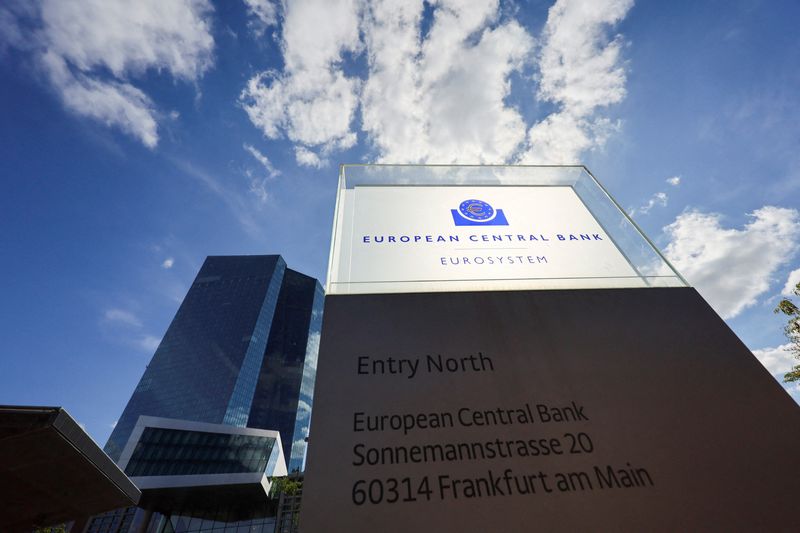By Samuel Indyk
LONDON (Reuters) - The yield on Germany's 10-year government bond rose back towards last week's 12-year high on Tuesday as policymakers continued to rule out interest rate cuts in the face of stubbornly high inflation.
The German 10-year yield, the euro area's benchmark, was last up 5 basis points (bps) at 2.96%. On Thursday it reached 2.98%, its highest level since July 2011.
Bond yields move inversely to prices.
On Monday, the European Central Bank's vice president Luis de Guindos told the Financial Times it was premature to start talking about rate cuts, while the central bank's chief economist Philip Lane on Tuesday said rising wages were underpinning euro zone inflation.
U.S. policymakers have sounded even more hawkish, suggesting rate hikes could still be needed to bring inflation back down to the 2% target and that policy will need to stay restrictive for some time.
"Yields are significantly higher and the curve has been bear-steepening again," said Anders Svendsen, chief analyst at Nordea.
"Markets are seeing this as an indication that interest rates are going to be staying higher for longer," Svendsen added.
Germany's policy-sensitive two-year yield was down 1.5 bps at 3.21%.
Markets are no longer pricing in any more rate hikes from the European Central Bank, with the first rate cut priced by July next year, LSEG data showed.
Yields extended their gains after data showed that U.S. job openings rose 690,000 to 9.610 million on the last day of August, pointing to tight labour market conditions that could compel the Fed to raise interest rates next month.
Italy's 10-year government bond yield, the benchmark for the euro area's periphery, was up 11.6 bps at 4.91%, just off its highest level in almost 11 years reached last week of 4.96%.
This pushed the closely watched gap between German and Italian 10-year yields, a gauge of risk premium for holding Italian debt over German, to 195 bps. On Friday it touched the psychological 200 basis points level for the first time since March as Italy cut its growth forecasts and hiked its budget deficit targets.
"The BTP-Bund spread is vital and this will be one of the biggest things for the next ECB meetings," Nordea's Svendsen said.
"If the spread stays here or even widens further, the ECB will struggle to let its PEPP (pandemic emergency purchase programme) run-off."
The ECB is currently scheduled to reinvest cash from its maturing debt under the PEPP until the end of 2024 but with inflation remaining high, there have been growing calls from policymakers to end reinvestments sooner.

Focus in Italy was also on supply, with total retail orders for the new 5-year 'BTP Valore' bond at 5 billion euros ($5.24 billion), Milan bourse data showed on Tuesday.
($1 = 0.9541 euros)